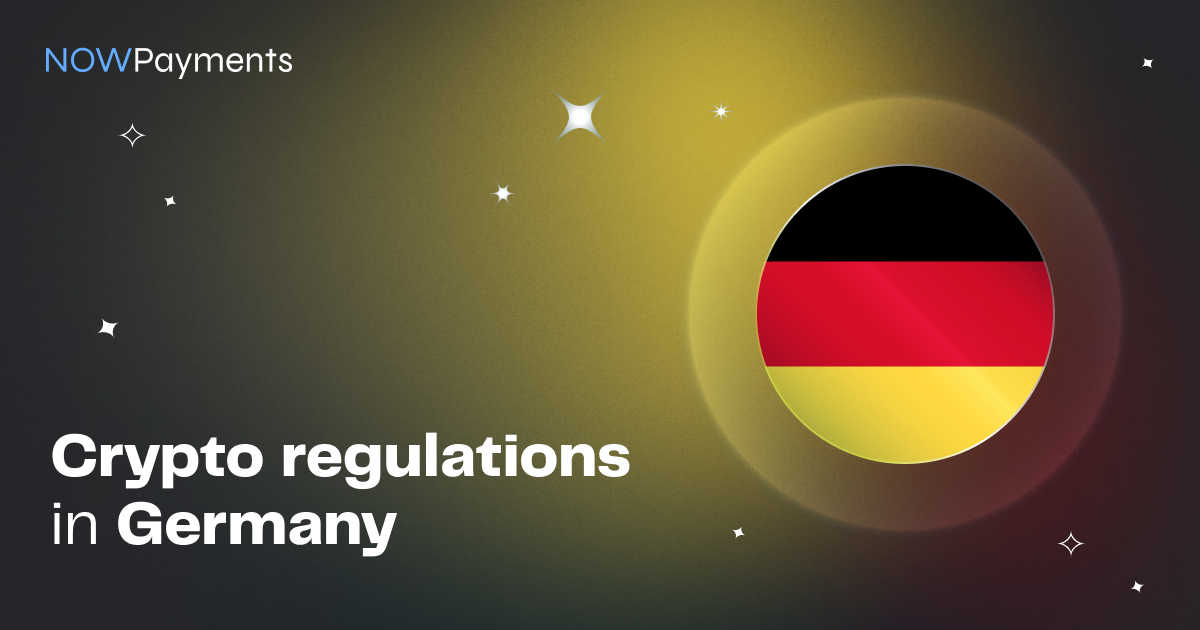Germany has become a significant player in the cryptocurrency landscape, establishing comprehensive regulations and fostering a vibrant crypto community. For businesses looking to navigate the German crypto market, understanding the regulatory environment, tax implications, and methods for integrating cryptocurrencies into their operations is crucial. This article provides an overview of the current crypto regulations and tax policies in Germany, insights into the local crypto community, and a guide on how to buy Bitcoin and accept crypto payments in Germany.
Crypto Regulations in Germany
Germany is one of the leading countries in Europe in terms of cryptocurrency regulation. The German Federal Financial Supervisory Authority categorize crypto-assets into three main types:
| Category | Examples/Definition | Usage | Regulation | Taxation/Notes |
|---|---|---|---|---|
| Payment Tokens (Cryptocurrencies) | Bitcoin (BTC), Ethereum (ETH) | Transactions and investments | Financial instruments under the Banking Act | Not legal tender; No VAT imposed on payments |
| Security Tokens | Represent ownership rights or financial interests in underlying assets like company shares or debt securities | Investments | Financial instruments under the German Securities Trading Act; Subject to prospectus requirements, custody regulations, and investor protection measures | Includes crypto securities under the German Electronic Securities Act and crypto fund units under the German Regulation on Crypto Fund Units |
| Other Crypto-Assets (E-Money) | Represents a claim against the issuer for payment transactions and is issued against funds | Payment transactions | Classified as electronic money under the German Payment Services Supervision Act; Subject to prudential requirements, including capital and liquidity rules to ensure financial stability |
BaFin’s regulatory framework is designed to ensure the integrity of the financial system while fostering innovation within the crypto sector. Key aspects of the regulations include:
- Licensing Requirements: Companies offering cryptocurrency trading, custody, or other financial services must obtain a license from BaFin.
- AML and KYC Compliance: Businesses must implement robust AML and KYC procedures to prevent illicit activities.
- Consumer Protection: BaFin ensures that companies provide adequate information to consumers, highlighting the risks associated with cryptocurrency investments.
Crypto Tax Policy in Germany
Germany’s tax policy on cryptocurrencies is relatively straightforward compared to other countries. The key points include:
- Private Sales: Cryptocurrencies held for more than one year are exempt from capital gains tax. If sold within a year, profits up to €600 are tax-free; beyond that, the entire amount is taxable.
- Business Income: Cryptocurrencies held as part of business assets are subject to regular corporate tax. Any gains from cryptocurrency transactions must be reported as business income.
- Mining and Staking: Income from mining and staking is generally considered taxable, and businesses must report it accordingly.
Businesses must keep detailed records of all cryptocurrency transactions to ensure accurate tax reporting and compliance with German tax authorities.
How many crypto users are there in Germany?
Germany boasts a robust and dynamic crypto community, with numerous blockchain startups, events, and meetups. Cities like Berlin and Frankfurt are hubs for crypto innovation, hosting various conferences, summits, and other events, and fostering an environment conducive to blockchain and crypto projects. Moreover, universities and educational institutions offer courses and programs on blockchain technology and cryptocurrencies.
As of 2024, approximately 4.19% of German citizens own and use cryptocurrencies. This data highlights a significant level of engagement with digital currencies like Bitcoin and Ethereum among the German population.
How to Buy Bitcoin in Germany
Buying Bitcoin and other cryptocurrencies in Germany is straightforward, especially through platforms like ChangeNOW, our trusted partner. Here’s a step-by-step guide:
- Choose Crypto Exchange Platform: In our case, we choose ChangeNOW.
- Select Cryptocurrency: Choose EUR in “You Pay” and BTC (or other crypto) in “You Get”.
- Enter Amount: Specify the amount you wish to exchange.
- Provide Wallet Address: Enter your Bitcoin wallet address where the BTC will be sent.
- Confirm Transaction: Review the details and confirm the transaction. ChangeNOW will process the exchange, and your Bitcoin will be transferred to your wallet.
ChangeNOW offers a user-friendly, registration-free platform with competitive rates, making it an ideal choice for businesses and individuals alike.

